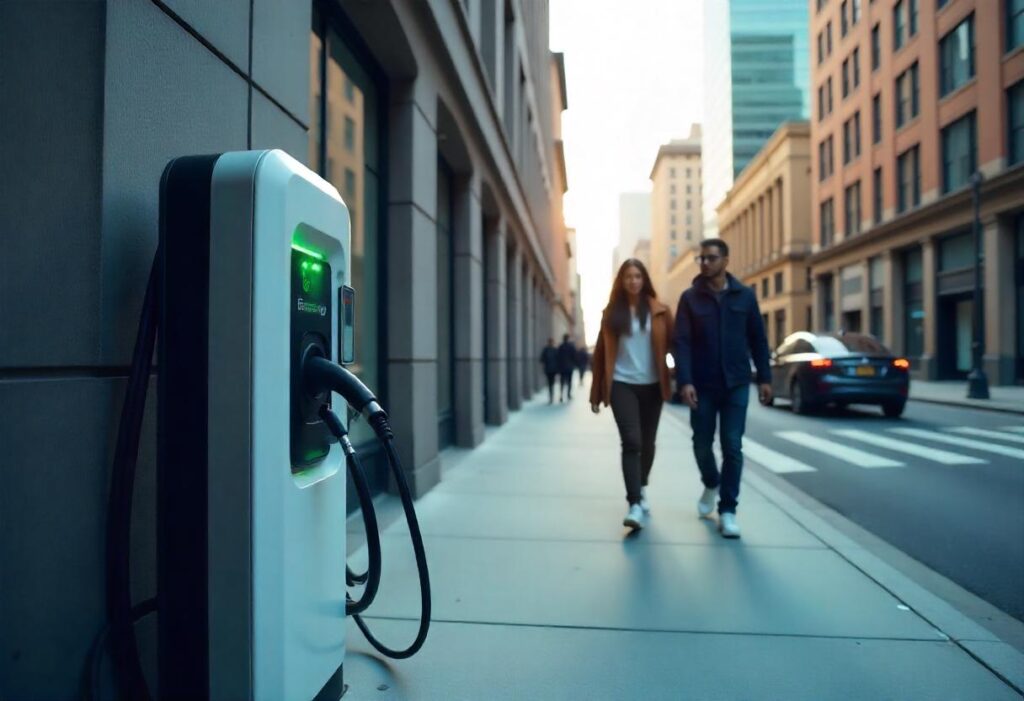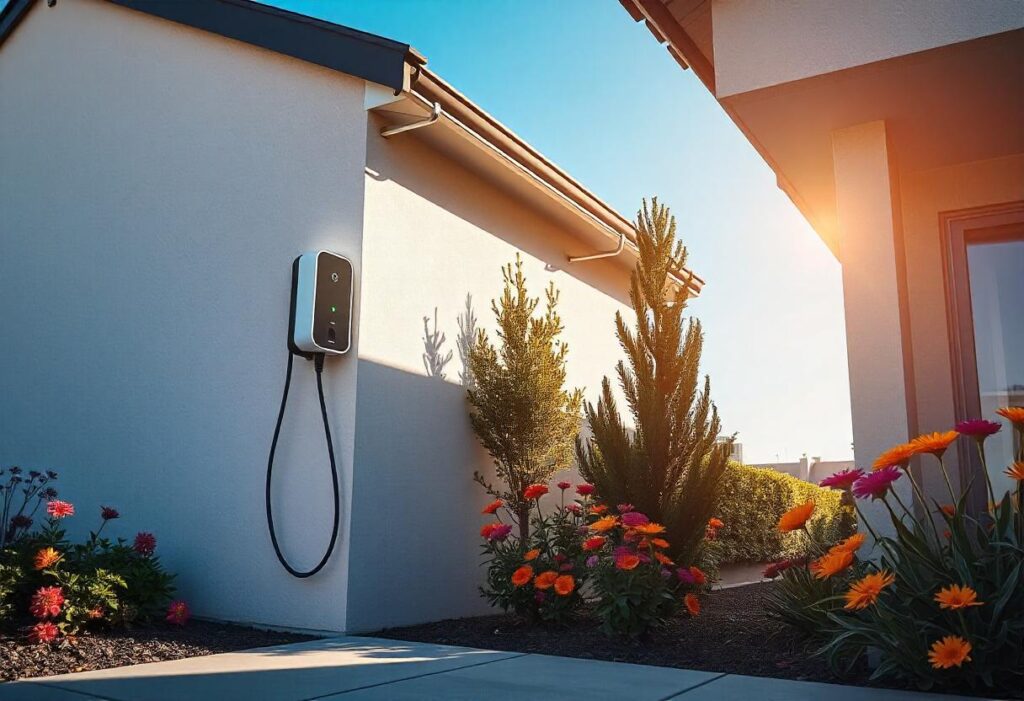Choosing the right home charger for your electric vehicle is an important decision. Two common options are 7kW and 22kW chargers, each with its own advantages and limitations. This guide provides a clear overview of the key differences to help UK EV drivers make an informed choice.
Understanding Charging Power (kW)
The term “kW” stands for kilowatt, which is a measure of electrical power. In the context of EV charging, it refers to the rate at which electricity can be delivered to your vehicle’s battery. A higher kW rating means a faster charging speed. Think of it like filling a container with water: a wider pipe allows for a faster flow.
Charging Time Comparison
One of the most significant differences between 7kW and 22kW chargers is the charging time. To illustrate this, let’s consider a few popular EV models* and their approximate charging times with each charger type:
*To see more popular EV car models, check out our dedicated EV reviews page!
| EV Model | Battery Size (kWh) | 7kW Charging Time (approx.) | 22kW Charging Time (approx.) |
|---|---|---|---|
| Nissan Leaf | 62 | 9 hours | 3 hours |
| Tesla Model 3 | 57.5 | 8 hours | 2.5 hours |
| Volkswagen ID.3 | 58 | 8.5 hours | 2.5 hours |
| Kia e-Niro | 64 | 9 hours | 3 hours |
| Renault Zoe | 52 | 7.5 hours | 2.5 hours |
It’s crucial to remember that these are estimates. Actual charging times can vary based on factors such as your EV’s maximum charging rate, the battery’s state of charge, and environmental conditions.

Home vs. Public Charging
7kW chargers are the most prevalent option for home charging in the UK. This is largely due to the limitations of residential electrical systems, which typically use single-phase power.
22kW chargers, which require three-phase power, are more commonly found in public charging locations such as:
- Supermarkets
- Shopping centres
- Dedicated charging hubs
These locations often have the necessary electrical infrastructure to support higher charging speeds.
EV Compatibility and Onboard Chargers
Before opting for a 22kW charger, it’s essential to verify your EV’s maximum AC charging rate. This is determined by the vehicle’s onboard charger, which converts AC power from the grid to DC power for the battery. Some EVs, especially older models, may have a limit of 7kW or less.
To determine your EV’s maximum charging rate, consult your vehicle’s manual or contact the manufacturer.
Three-Phase Power Requirements
22kW chargers require a three-phase power supply, which is not standard in most UK homes. If you’re considering a 22kW charger for home installation, you’ll need to have a qualified electrician assess your property and potentially upgrade your electrical system. This may involve:
- Upgrading your incoming electricity supply.
- Installing a new consumer unit (fuse box).
- Running dedicated cabling to the charger location.
It’s important to factor in the potential costs of these upgrades when making your decision.
Cost Considerations
When evaluating your options, consider the following cost factors:
- Charger Cost: 22kW chargers generally have a higher upfront cost compared to 7kW chargers. However, the price difference has been decreasing in recent years.
- Installation Cost: Installing a 22kW charger may require electrical upgrades, which can add to the overall expense. It’s advisable to obtain quotes from several qualified installers to compare prices.
- Electricity Cost: Electricity is typically billed per kWh consumed, regardless of the charger’s power output. Therefore, charging with a 22kW charger won’t necessarily be more expensive than using a 7kW charger. However, it’s worth considering time-of-use tariffs, which can offer lower electricity rates during off-peak hours.

Future Trends: Smart Charging
Smart charging is an emerging technology that can optimise your charging experience by:
- Time-of-Use Optimisation: Smart chargers can be programmed to charge your EV during off-peak hours when electricity rates are lower, helping you save money on your energy bills.
- Solar Integration: If you have solar panels installed at your home, a smart charger can prioritise using solar energy to charge your EV, maximising your self-consumption of renewable energy.
- Load Balancing: Smart chargers can monitor your household electricity consumption and adjust the charging rate of your EV to avoid overloading your electrical system. This can help prevent tripped circuit breakers and ensure the smooth operation of other appliances.
- Remote Monitoring and Control: Many smart chargers come with mobile apps that allow you to monitor your charging progress, schedule charging sessions, and control your charger remotely.
EV Charger Installation in Cardiff
Are you based in Cardiff and looking to install a 7kW or 22kW EV charger at your home? The Full EV offers expert advice and professional installation services. Contact us today for a free consultation and let our experienced team help you choose the right charging solution for your needs.


